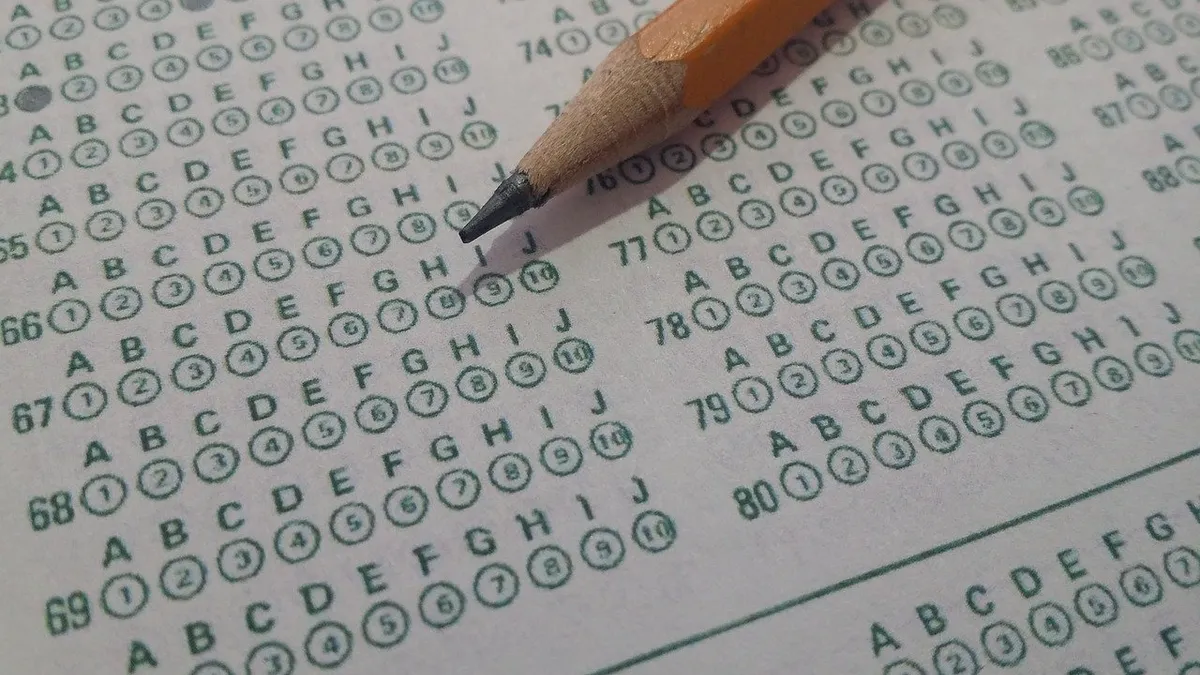UPDATE: July 12, 2021: Illinois Gov. J. B. Pritzker, a Democrat, signed the bill mandating test-optional admissions at the state's public colleges on July 9. It takes effect January 2022.
Dive Brief:
-
A bill working through Illinois' legislature would require the state's public colleges to adopt test-optional admissions policies for prospective undergraduates.
-
State residents would no longer need to submit ACT or SAT scores to public schools, though they would be allowed to do so. The measure would take effect in January.
-
A slew of institutions converted to test-optional admissions during the first several months of the pandemic, and some extended those practices into future admissions cycles.
Dive Insight:
When the public health crisis shut the doors of common testing sites such as K-12 schools, many colleges did away with entrance exam requirements for fall and spring 2021 applicants.
Some of those schools have maintained test-optional admissions for those entering college in fall 2022. FairTest, a group that advocates for controlled use of standardized exams, tracked at least 1,400 four-year colleges and universities that won't require SAT or ACT scores for those applicants. This list includes schools that were test-optional prior to the pandemic.
Bob Schaeffer, FairTest's executive director, said in an email that test-optional policies are "rapidly becoming the 'new normal' for undergraduate admissions."
Establishing permanent test-optional admissions among Illinois' public colleges would extend the current status quo, he said, as many have temporarily waived their requirements. He noted, too, that some of the state's private institutions nixed entrance exam mandates before the pandemic.
The bill passed the House last month in a 109-8 vote. The Senate is reviewing it.
At least one other state, Colorado, is considering legislation on this issue.
Lawmakers there proposed a bill ending the requirement that the state's public schools use an assessment score — such as the SAT or ACT — in admissions. It is advancing with strong support from its colleges, Chalkbeat reported.
Proponents of test-optional admissions argue the policies remove barriers to postsecondary education for low-income or otherwise disadvantaged students. Admissions professionals say test-optional policies are part of the reason for an uptick in applications to some selective colleges this year.
A recent study of 99 private schools that were test-optional prior to the pandemic associated those policies with small gains in enrollment of underrepresented students. Yet these systems alone may not be enough to prompt "a more transformative change," the study states.














